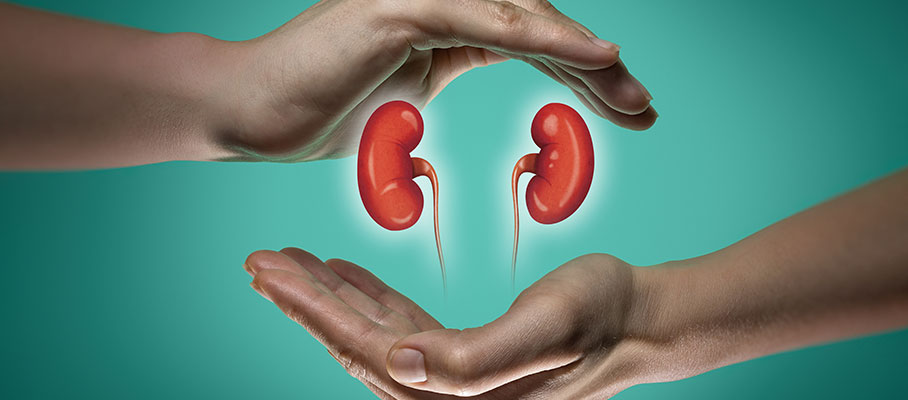. . . and tell your colleagues to join you here on @ckd_ce, your ONLY source for accredited #tweetorials in the #CKD space! #nephtwitter @IgAN_JBarratt @ChristosArgyrop @goKDIGO @CKJsocial @ERAkidney @kidneypathology @Vikas_R_D @Renalpathsoc
— @CKD_ce (@ckd_ce) December 17, 2021
2) The @ckd_ce program is supported by educational grants from Travere, Bayer, and Otsuka. This program is intended for healthcare providers. Faculty disclosures can be found at https://t.co/PHlIppl6Yw. Follow us here for accredited tweetorials by experts in #nephrology!
— @CKD_ce (@ckd_ce) December 20, 2021
4) Just like minimal change disease, FSGS is a podocytopathy. In most cases, we see minimal change disease when there is significant repair. When no/limited repair occurs, we see FSGS. pic.twitter.com/YjuCWh9dI5
— @CKD_ce (@ckd_ce) December 20, 2021
6) You can further subdivide FSGS by presumed etiology: primary, genetic, and secondary. https://t.co/VF1H6xIQdj We now believe that primary FSGS is caused by a circulating factor that injures the glomeruli. The identify of this factor is still unknown. pic.twitter.com/ArSwS0hdor
— @CKD_ce (@ckd_ce) December 20, 2021
7) The most common gene mutation implicated in adult-onset familial FSGS is:
— @CKD_ce (@ckd_ce) December 20, 2021
a) type 4 collagen gene mutation
b) podocin gene abnormality
c) actin gene abnormality
d) CoQ10 gene mutation
8) Mark your response and return tomorrow for the correct answer and the remainder of this program! You are earning CE/#CME! @drbstewart @NatRevNeph @VelezNephHepato @acssjr #FSGS
— @CKD_ce (@ckd_ce) December 20, 2021
10) Over 50 genes have been identified that can result in #FSGS; most affect #actin or #podocin proteins. In adults, the most common genetic cause of FSGS is a type 4 collagen gene mutation. pic.twitter.com/Mh7MMbIzKe
— @CKD_ce (@ckd_ce) December 21, 2021
12) The other gene that results in FSGS is APOL1. Abnormalities here don't necessarily cause kidney damage, but definitely increase the risk of developing kidney damage…especially in patients of African ancestry. (slide by M Pollak) pic.twitter.com/j9MAk4SmFI
— @CKD_ce (@ckd_ce) December 21, 2021
14) How do you differentiate primary (permeability factor) from secondary FSGS? Use this figure as a guide. https://t.co/z0N2vNLCPB pic.twitter.com/hy4Xnn7HdC
— @CKD_ce (@ckd_ce) December 21, 2021
16) A larger study is needed but you can read an excellent tweetorial by David Wheeler on the topic here: https://t.co/YDN4envf9E @Sglt2inhibitorL @SantosGallegoMD @dsndersonrx @drricardocorrea @AliceYYCheng
— @CKD_ce (@ckd_ce) December 21, 2021
— @CKD_ce (@ckd_ce) December 21, 2021
19) Once you've decided on the non-immunosuppressive therapy, move onto the #immunosuppression. For most histopathologic variants of primary #FSGS, we start with steroid monotherapy.
— @CKD_ce (@ckd_ce) December 21, 2021
21) When should you consider genetic testing in an adult patient with FSGS?
— @CKD_ce (@ckd_ce) December 21, 2021
a) after response to steroids
b) after no response to steroids
c) a strong family history of MCD
d) other (please reply with your answer)
23) #Cyclosporin A results in partial remission 27-57% of the time & complete remission 12-19% at 3.5 mg/kg/d divided into 2 doses (trough 100-175).#MMF seems to be as good as cyclosporin A. No real differences seen in the Clinical Trial (FSGS-CT) https://t.co/h3QY8dt72q pic.twitter.com/L2faeuymoo
— @CKD_ce (@ckd_ce) December 21, 2021
25) In summary, #FSGS is a histopathologic pattern that can have many genetic & acquired etiologies. Start with steroids & progresses up to calcineurin inhibitors or inosine monophosphate dehydrogenase inhibitor (e.g., MMF), but there are emerging options.
— @CKD_ce (@ckd_ce) December 21, 2021
27) And that's it! You just earned 0.5h CE/#CME credit! Claim it at https://t.co/sXkV3jO1kq. I am @nephondemand. FOLLOW US for more FREE accredited #tweetorials from expert authors! #NephTwitter #Nephrology @MedTweetorials #FOAMed
— @CKD_ce (@ckd_ce) December 21, 2021
